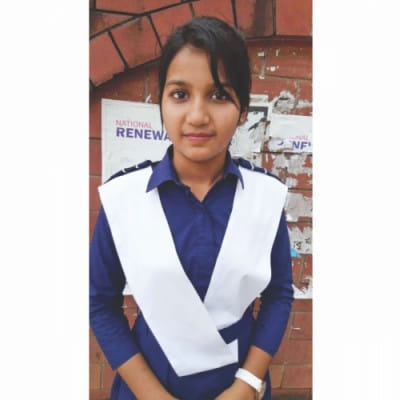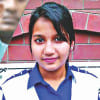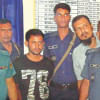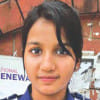Risha murder trial sees the light at last

The trial of the sensational Risha murder case can finally resume as the Children's Act, 2013, has been amended plugging loopholes the defence exploited to stall the proceedings.
Fourteen-year-old Risha was stabbed to death on a footbridge close to her school, Willes Little Flower School in Kakrail, by her stalker Obaidul Kader, 28, in 2016.
The trial had progressed at the Additional Metropolitan Session Judge's Court, Dhaka, and 20 out of 26 witnesses had testified by June 2017 when the defence appealed to the court to transfer the case to Shishu Court.
The defence's ground for the transfer was that Risha was 14 at the time of her murder and two prosecution witnesses were below the age of 18.
Having had the appeal rejected, the defence prayed to the Metropolitan Session Judge's Court and got the case transferred.
The defence successfully stalled the trial drawing the court's attention to the 2013 act. It wrote to the chief justice, requesting him to clear the confusion over the punishment of Obaidul, if found guilty, by the Shishu Court.
The 2013 act gave the sole authority to Shishu tribunals to hold the trial of cases linked to “children in conflict with the law” or “children in contact with the law”. Underage victims and witnesses are considered “in contact with the law”.
The 2013 act did not specify what punishment an adult accused, if convicted, should be given, as in the case of Risha.
The act was amended and according to a November 14 gazette issued, the Shishu Court would only deal with cases in which a child is “in conflict with the law”.
Following the amendment, there is now no confusion; Shishu Court should not conduct the trial of Risha's murder since the court has the jurisdiction to try only those cases that have children “in conflict with the law” (accused), said lawyer Ataullah Nurul Kabir, from Amrai Pari, an alliance to end violence against women.
And the adult accused should be tried under the relevant law depending on the crime he or she allegedly committed, he said.
Fahmida Akhter Rinky, who represents Risha's parents in the case, told The Daily Star over the phone on January 16 that the case was waiting to be sent to a relevant court from the Shishu Court.
The gazette on the amendments says all cases that are under trial or being prepared for trial with charges brought against children should be transferred to Shishu Court within 90 working days from the enforcement of the Children's [Amendment] Act, 2018. If not possible, the timeframe might be extended for another 45 working days.
There should be no separate Shishu tribunal. Instead, the Women and Children Repression Prevention tribunals will act as Shishu tribunals while overseeing trial of a case under the Children's Act.
If a district did not have any such court, the District and Session Judge's Court would play the role of the tribunal.
In instances when children and adults have committed a crime together, police reports or probe reports should be prepared separately for children and for adults.
Courts should hold the trial of the children “in conflict with the law” under the Children's Act and adults should be tried under the relevant law by any court with the jurisdiction.

 For all latest news, follow The Daily Star's Google News channel.
For all latest news, follow The Daily Star's Google News channel. 







Comments